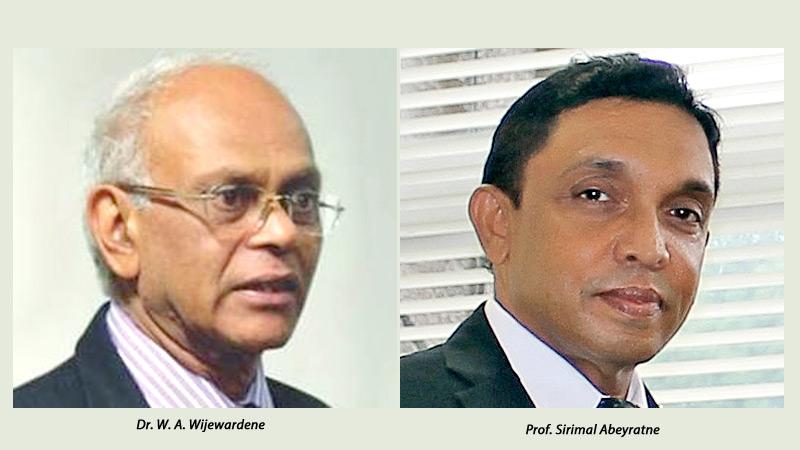
The new government will have to come to office with plans first, for economic recovery and then for economic progress focusing on fiscal discipline, putting an end to living on borrowed plumes, said economists, as the country prepares for another General Election within two moons.
They urged those contesting to stop promising the sun and the moon which the country does not have the capacity to deliver given the two major shocks that rocked the economy within a year bringing growth on all fronts to a standstill.
Former Central Bank Deputy Governor Dr. W.A. Wijewardena said in terms of the economy, Sri Lanka is in dire straits today; the ailing economy has been hit by two shocks that have crippled it beyond redemption; one was the Easter bomb attack last year and the other was the Covid-19 pandemic.
Both have partly killed the country’s ability to produce, export, tax and create wealth.
This has to be kept in mind by all political parties contesting the election. Following the usual tactic of promising the Sun and the Moon, they may seek to lure voters to their camp but the country doesn’t have the space to deliver these promises.
The reality is completely opposite to what may be painted by them.The country has to make a massive sacrifice to put it on a sustained growth path. “We are already consuming beyond our capacity by borrowing abroad; the urge to borrow, consume and pass the burden to posterity has infected the nation like a pandemic far worse than the present Covid-19,” he said.This has to be stopped and borrowings should be used carefully for future productivity and income generating enterprises.
The acquisition of modern technology and using it to improve productivity across the board should be the priority of all political leaders.
Sri Lanka’s budget is beyond control; when Singapore got Independence in 1959, the situation was the same as in Sri Lanka today.
The new PAP government started work by announcing a one-third pay cut for all, including politicians but excluding daily paid low wage workers; that was to bring the government expenditure in line with its revenue capacity; Sri Lanka’s present revenue capacity, crippled by the recent tax concessions, is about 10% of GDP. Surely, the nation cannot have a current expenditure program of 15% of GDP; it has to be tackled by adopting a two-pronged strategy: raising tax capacity to 15% of GDP immediately by restoring the old tax system and as Singapore did, by voluntarily cutting current expenditure by three percent of GDP; the ensuing surplus can part finance the capital expenditure redirected to increase investments in technology, Research and Development, startup seed capital funds and essential infrastructure in power, roads and modernised ports.
There is no future for the country without implementing these policies.
Professor in Economics, University of Colombo, Sirimal Abeyratne said the Sri Lankan economy, as elsewhere, has been affected by the country’s own lockdown, breakdown of international connectivity, and the global economic recession.
Fiscal and monetary policy stimuli would be helpful in mitigating the negative impact of the loss of income and livelihood for a sizable section of the population which would also result in increased poverty.
“We should understand that the lack of a centralised national database has always obstructed the effectiveness of targeted fiscal policy stimuli and the presence of structural weaknesses and regulatory barriers have led to limited success of monetary policy stimuli.
This is a good opportunity to correct them exploiting the emerging opportunities,” he said.
Seven thousand four hundred and fifty two candidates from political parties and independent groups will contest at the upcoming polls to be held on August 5.
Of the contestants 196 will be elected while 29 seats will be filled through the National List.
